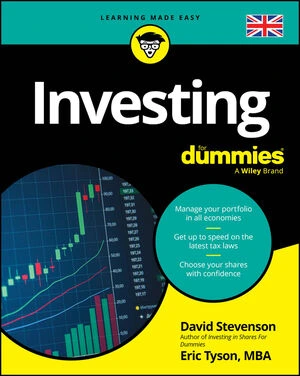When you sift through the decades of stock market trading and you research what penny stocks and small-cap stocks have done, you see a definitive profile of winning small-cap stocks. Regardless of industry or sector, there are clear signs to look for in identifying the small-cap stock that could soar and earn you some phenomenal gains.
What are the company's numbers?
Is the company an existing enterprise with sales and earnings? How long has it been around? What are its assets and liabilities? You analyze a small company in much the same way you would analyze larger companies. Use a value investing approach to see whether you have a company with a promising future.
This type of research is especially important if you're an investor (rather than a speculator), which means you'll potentially be with this company for years.
What are the product and the market?
Is the product good? Is there consumer acceptance for what the company offers? Who is the company's market? Is it a growing market? Check this out. Go to consumer sources such as Consumer Reports or Consumers' Research to find out about the product and how popular it is. Do a search for its industry or sector at sites such as Bloomberg or Hoovers to see whether the market is growing and who the competitors are.
If possible, visit the company, especially if it has a retail outlet or it's a restaurant or other type of enterprise that's accessible to the public. Ask yourself whether the place looks busy, how many customers there are, and what they are buying. It's also good to have a brief chat with an employee or two. Ask whether they like the company, when it is busy, whether the company is planning expansion or adding new products, and so on.
Can the company ride a megatrend?
Many times, what makes a stock a success is riding a megatrend of popular interest. A good example is Chipotle Mexican Grill (CMG), which was a small-cap stock in 2006. Then (as now), the public wanted fresh, healthy food that tasted good. Greater consciousness about healthy alternatives to hot dogs and hamburgers gave CMG the market oomph it needed to boost its sales and profits.
Chipotle restaurants proliferated, and its stock soared over 1,000 percent. Its stock price surpassed $700 per share in early 2015, and CMG is currently a large-cap stock with a market valuation of over $18 billion.
Who are the company's partners?
One of the clues of potential success for a small company is who it will be doing business with either as a marketing outlet or as a business partner. For example, part of what spurred on Chipotle's success was partnering with the well-known restaurant chain McDonald's.
When a small company can gain a larger and more successful company's backing, the small company's prospects for success are helped because it can leverage the larger company's expertise and resources to enhance its potential success. In this case, McDonald's is a huge company with decades of proven success in the fast food industry, which is something that Chipotle (as a fledgling company) can benefit from.
Keep in mind that when a large company does get involved with a small company (in a joint venture, an investment, or other involvement), the connection tends to be a public event, and that information is usually revealed at either or both companies' websites and in press releases that are published at major financial sites.
News reports on the company — along with press releases and other public communications — will alert you when high-profile joint ventures or business deals occur. When a large, successful company does business with your company, the chances of success go up dramatically.
What's the track record of the management team?
As you research the company, look at the profiles and bios of the management team. If they have a successful track record, that's a huge plus. Good management is crucial for success.
As you read the biographies of the key managers, make sure they have extensive experience in the same industry and/or the same type of business. If the business is a biotechnology firm, does the management team have extensive experience in biotech, and how did the firms they were with perform?
Are insiders buying the stock?
When the management team is heavily buying the stock of the enterprise and key high-profile outside investors are buying the company's stock, chalk it up as another big plus. Hey, look — if Warren Buffett is buying a half million shares, can you take a hint and get some shares, too?
What have been the company's turnaround opportunities?
Believe it or not, a good place to look for a successful small-cap company is in a formerly successful company. A company that has succeeded and then stumbled offers you a chance to profit on its rebound. Looking for turnaround candidates can be a profitable pursuit.
A good example of this is Anthera Pharmaceuticals (ANTH). In 2012, ANTH traded as high as $65 per share before it tumbled all the way down to $0.84 in 2014. Paul Mampilly, a successful speculator who made himself and his clients excellent gains, analyzed the company and saw that the company had intrinsic value, plenty of cash, and patents. In 2014, the investing public's appetite for biotech continued its steep ascent, and biotech firms in general rallied. ANTH rallied to $7 per share for a gain of 733 percent.
The takeaway for investors is to spend greater time and effort looking as deeply as possible to see value that gives the company opportunities to produce income in the near future.






